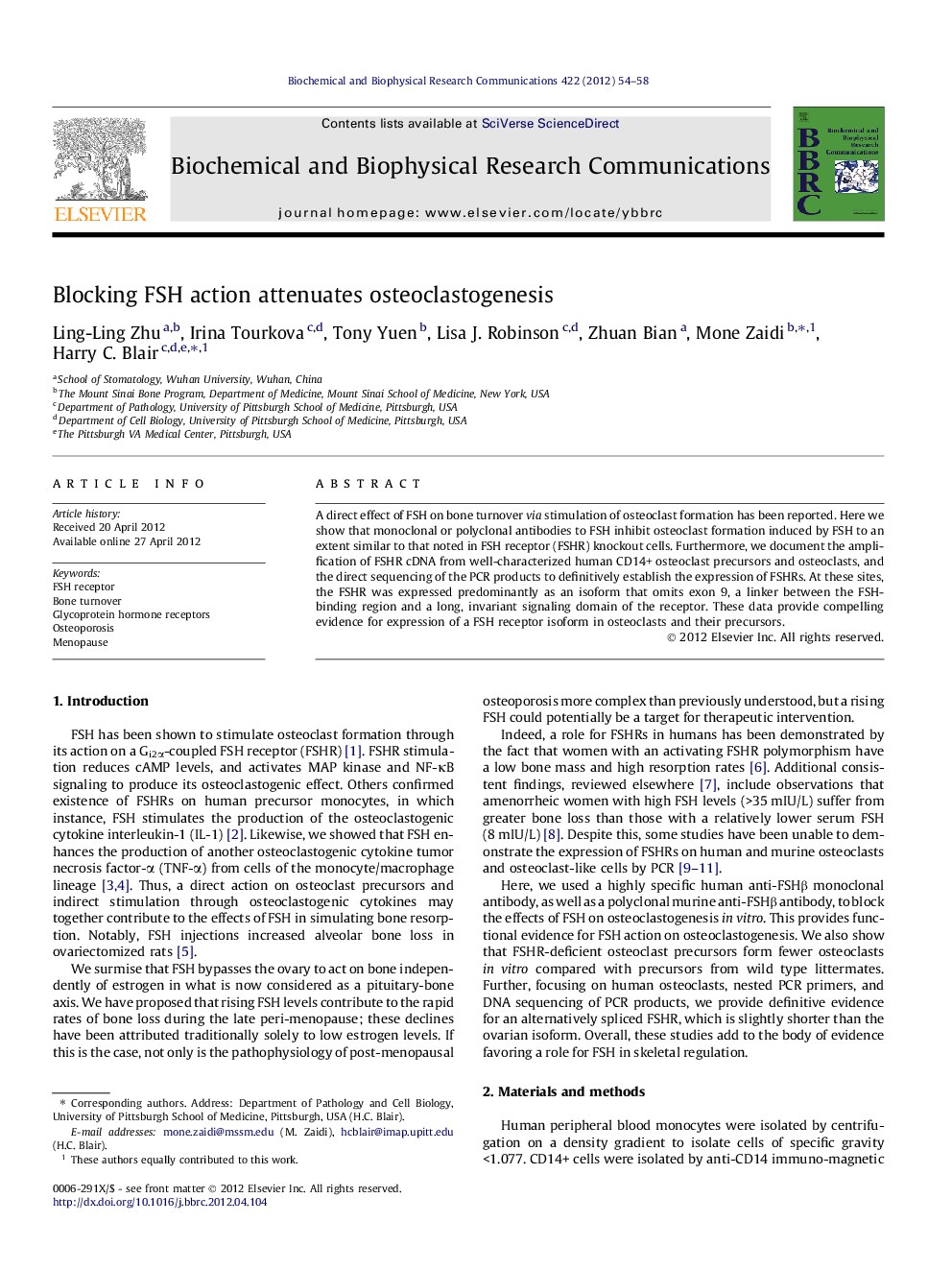| Article ID | Journal | Published Year | Pages | File Type |
|---|---|---|---|---|
| 1929718 | Biochemical and Biophysical Research Communications | 2012 | 5 Pages |
A direct effect of FSH on bone turnover via stimulation of osteoclast formation has been reported. Here we show that monoclonal or polyclonal antibodies to FSH inhibit osteoclast formation induced by FSH to an extent similar to that noted in FSH receptor (FSHR) knockout cells. Furthermore, we document the amplification of FSHR cDNA from well-characterized human CD14+ osteoclast precursors and osteoclasts, and the direct sequencing of the PCR products to definitively establish the expression of FSHRs. At these sites, the FSHR was expressed predominantly as an isoform that omits exon 9, a linker between the FSH-binding region and a long, invariant signaling domain of the receptor. These data provide compelling evidence for expression of a FSH receptor isoform in osteoclasts and their precursors.
► Monoclonal or polyclonal antibodies to FSH inhibit FSH-induced osteoclast formation. ► Human CD14 + osteoclast precursors and osteoclasts express FSH receptor. ► The FSHR expressed in these cells is predominantly a shorter isoform lacking exon 9.
